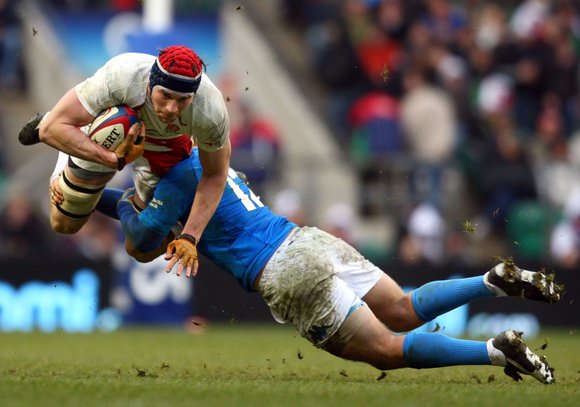Homophobia In Sport: English Rugby Union Praised For Tackling Abuse
CNN/Stylemagazine.com Newswire | 2/13/2017, 2:45 p.m.
LONDON (CNN) -- English rugby has been praised for clamping down on homophobia in the sport, though a leading gay referee warns there is still work to be done in eradicating the problem.
A British government select committee released a report Sunday investigating the prevalence of homophobia in UK sport and how the ruling bodies were dealing with it.
It said soccer clubs "in particular are not doing enough and should take a tougher approach" and compared them unfavorably to the stance of the English Rugby Union (RFU).
In November 2014, two rugby fans were banned for two years and each ordered to pay £1,000 ($1,250) to a charity of gay referee Nigel Owens' choice after the Welshman was verbally abused while officiating an international match between England and Wales at Twickenham.
"I don't think rugby can take the moral high ground ... but it does better address those issues than a lot of other sports do," Owens told the Culture, Media and Sport Committee in his testimony.
"When that instance in Twickenham was brought to the attention of the RFU, it was dealt with.
"As far as homophobia goes, there are some issues in rugby that need to be addressed and need to be eradicated, but I think rugby is aware of those problems and it does all it can to eradicate them."
"No place in our sport'
The committee also praised rugby union's rival code rugby league for its response when openly gay player Keegan Hirst received homophobic abuse on Twitter after a game in September 2016.
His club at the time, Batley Bulldogs, banned the supporter from its stadium.
"There is no place in our sport for homophobic abuse or indeed any abuse and we wish to send out a clear message," the club said.
'Significant progress'
The committee said rugby union, along with sports such as swimming and diving, had made "significant progress" in increasing the visibility of gay participants.
The RFU said it supported nine gay rugby clubs across England, and planned to bid for the right to again stage the biennial international Bingham Cup tournament -- an amateur gay rugby union tournament -- which was held in Manchester in 2012.
It said its "We Call It Rugby" campaign featured an advert aimed at breaking down barriers for LGBT people, profiling the gay and inclusive Manchester Spartans club, and overall the series of videos had reached almost 35 million people through outdoor advertising, social media and television.
The campaign was aimed at 16- to 24-year-olds, an age group the committee said was notable for gay athletes dropping out of their sports.
"It appears that young players and athletes sometimes feel that they have to make the active choice between either coming out or continuing to participate in their chosen sport," it said.
"As a result, players and athletes either drop out of sport together or, as has been the case with some professional sportspeople, they wait until after retirement to come out."
For more information go to http://www.cnn.com





